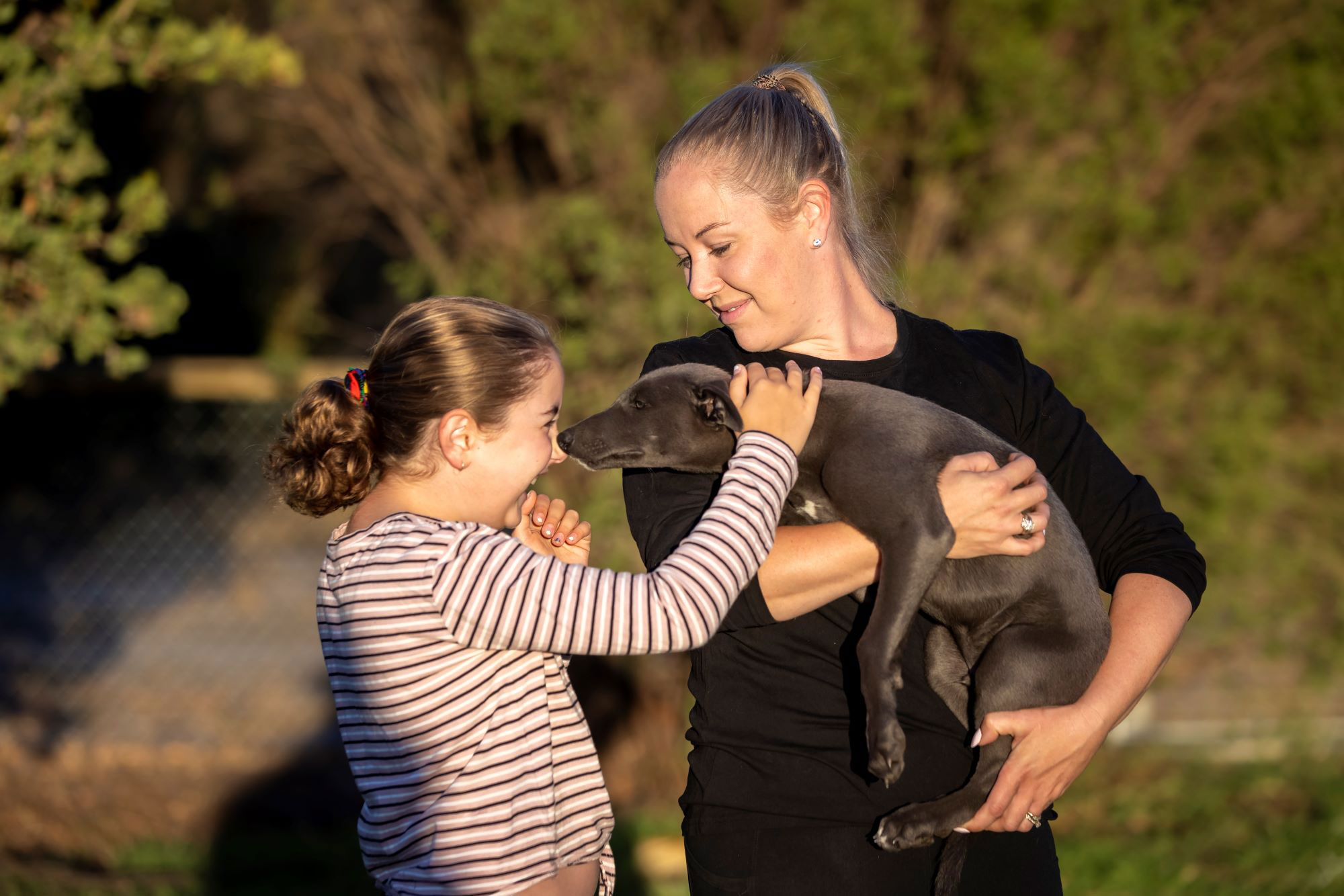A range of welfare initiatives and programs are in place to protect the wellbeing of greyhounds.
These standards are upheld by overarching rules and regulations and are enforced by stewards, who are the police of the racing world.
Greyhound racing is subject to stringent welfare and integrity controls, which are regulated by the State appointed regulator, Racing WA. The Rules of Racing are designed to protect all racing animals. They are effectively laws that regulate the action of all people in racing and include rules on the care and treatment of racing animals. Stewards are the police of the racing sector and have the power to strictly enforce the rules, both on and off the track.
Learn moreWA has a small breeding population in comparison to other states and has strict controls in place to ensure responsible breeding, which state that female greyhounds:
- Must be registered to breed.
- Are not allowed to be bred after the age of eight unless she meets certain criteria, including a veterinary health and fitness assessment as well as proven success from previous litters.
- Only allowed to have a maximum of five litters.
- No more than two litters in any 18-month period.
- Must be up to date with vaccinations.
A veterinarian and a vet assistant are present at all greyhound race meetings. The vet checks each greyhound before every race ensure they are fit and healthy. No greyhound will race if the vet has any concerns. Greyhounds that show any sign of injury during a race are also examined by the vet immediately.
In WA, around 99.7% of greyhound starters race safely. Since everyone wants to avoid injuries, the racing community actively strives to limit the risks of racing. For the small number of greyhounds that are injured in racing, the Greyhound Recovery Initiative ensures appropriate care.
The recovery initiative provides trainers and owners with financial support for diagnostic assessment, treatment and rehabilitation post-surgery. This support enables treatment decisions to be guided by veterinary advice on the greyhound’s overall long-term welfare.
There are a number of policies to protect the welfare of racing greyhounds, including:
- Code of Practice for the Keeping of Racing Greyhounds, which is based on scientific knowledge and recommended industry practice, and sets the minimum standards to safeguard welfare. The Code was developed in conjunction with the RSPCA as well as experts in greyhound management, welfare and veterinary science.
- Greyhound Racing Hot Weather Policy, which details the appropriate practices required on-course to ensure the proper management of hot weather, to safeguard the health and welfare of both the greyhounds and participants.
All racing greyhounds are registered and tracked throughout all stages of their lives, from birth to retirement. All owners of racing greyhounds must also be licenced, and any transfer of ownership is lodged with Racing WA as the regulator. Similarly, the location of all greyhounds must be disclosed. This ensures the responsible person and the location of a greyhound is known at all times.
As part of racing’s commitment to provide the highest animal welfare standards, a review by the University Technology of Sydney (UTS) was commissioned, to assess the State’s three greyhound tracks against the latest design and maintenance technology and research.
The UTS review provided clear advice on elevating the existing standards of the three tracks, with current and planned works underway.
Stewards regularly conduct inspections at properties where racing animals are kept. There is around 160 licensed greyhound trainers in WA, with approximately 170 inspections undertaken by stewards each year. Stewards also attend to inspect and identify all litters at approximately six weeks of age.


